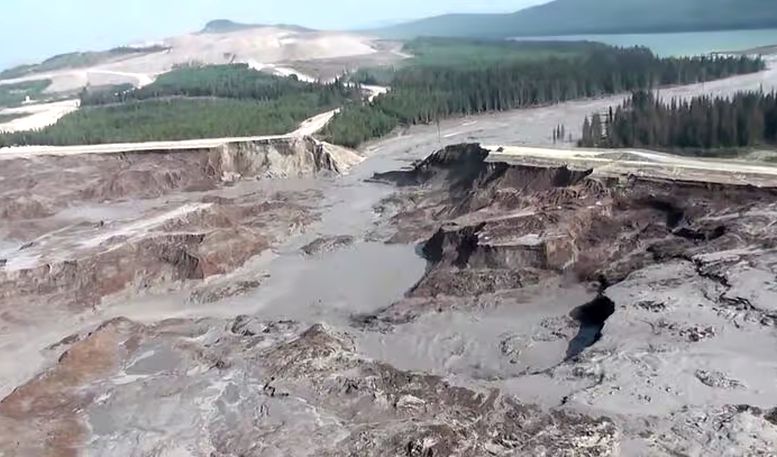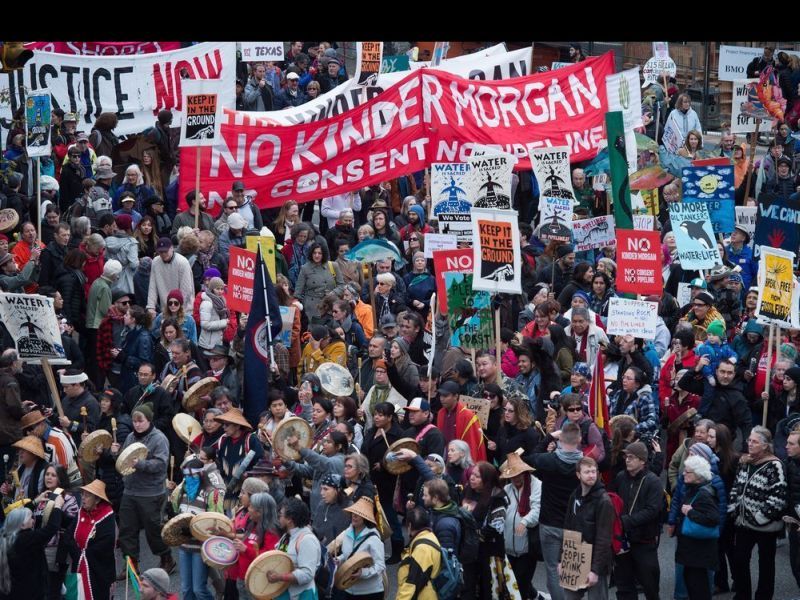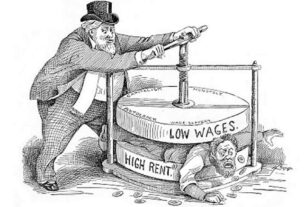In 2014 a tailings pond collapsed in BC at the Mount Polley mine, spilling 25 billion litres of toxic sludge that obliterated a watershed and contaminated Quesnel Lake — a source of drinking water, a Fraser River tributary and home to salmon and trout. This stands as one of Canada’s worst ecological mining disasters. The mine has continued to operate.
Now the Xatśūll First Nation, on whose traditional territory the Mount Polley mine operates, have alleged that the provincial government issued a permit for the Mount Polley mine to raise the height of this high tailings dam without consulting them or even conducting an environmental assessment. The Nation has filed for an emergency injunction in the BC Supreme Court to halt construction of the heightened dam after learning that it was already underway.
The mine, which is a subsidiary of Imperial Metals, says it needs the additional height — an additional 17 metres on top of the current 60 — to hold the waste it is continuing to generate.
The BC government finally charged Imperial Metals with violating the federal Fisheries Act because of the Mount Polley spill in December 2024, more than a decade after the disaster. In the interim, the Province granted the company a permit to discharge even more waste into Quesnel Lake and spent tens of millions of taxpayer dollars on remediation.
In 2024 the mine generated a whopping $106.3 million in net income for Imperial Metals.
Meanwhile, the environmental consequences of the 2014 spill continue to reverberate. Scientists have discovered that although much of the lead, copper, arsenic and other spilled contaminants have settled to the bottom of Quesnel Lake, currents in the lake are continually stirring them up, facilitating their entry into the food chain and exacerbating their environmental impact. The people of BC will likely be living with the consequences of this disaster for generations.
Privatized profits, socialized costs
Ostensibly in response to the threat of US tariffs and associated economic uncertainty, the BC NDP government has vowed to “streamline permitting across the natural-resource sector” — in other words, to reduce oversight and regulation. The recently elected federal Liberals are singing this same tune, as are the opposition federal Conservatives.
This tri-partisan consensus is a powerful demonstration of the political clout of the Canadian mining industry, which has long been lobbying for deregulation. To further illustrate: Imperial Metals — a small company by industry standards — gave the BC Liberals (the provincial conservative party until 2024) over a quarter-million dollars between 2005-2017, and its major shareholder helped organize million-dollar private fundraisers for the party.
These corporations and their politicians claim that too much “red tape” is impeding mining projects, and that cutting this red tape will benefit everyone on “Team Canada” by strengthening the economy and creating jobs. But poor and working people shouldn’t fall for these lies.
In fact, a recent study found that the construction and production of mines in BC is overwhelmingly constrained, not by regulations, but by market price fluctuations that cause mining companies to slow production until prices recover. In other words, mining corporations are the ones putting people out of work, doing it to protect their profits as the industry cycles through booms and busts.
“Streamlining” and “fast-tracking” will only line the pockets of the CEOs and their investors, and it will do so at the expense of the environment and future generations.
The Canadian mining industry is already woefully under regulated, often leading to disasters. And while mining companies dodge accountability — disbanding themselves if all else fails — poor and working people get stuck with the bill.
Mount Polley is just one of many examples. Last year Victoria Gold Corp went into receivership after 300 million litres of cyanide solution spilled out of its Eagle Rock mine in the Yukon (with more leaking out everyday since). It’s estimated that taxpayers will pay at least $150 million for remediation at Eagle Rock, and probably far more. Victoria Gold made $25.1 million in 2023.
But the classic example is still Royal Oak Mines, which declared bankruptcy in 1999 after making a record $255.2 million in 1996 ($464.3 million in today’s dollars). This left taxpayers on the hook for the at least $4.38 billion cost of remediating its Giant mine near Yellowknife, which has left the area with a toxic legacy. The rock surrounding this defunct mine must now be kept frozen indefinitely to prevent the 237,000 tonnes of arsenic it still contains from further contaminating the groundwater around Yellowknife — home to many of the mine’s former employees and their children.
These sites and others like them will take many generations to recover. Meanwhile, potential future disasters continue proliferating. Alberta’s toxic oil sands tailings ponds are estimated to cover 300 square kilometres and growing.
For a workers’ mining industry
Further deregulation of this industry, contrary to the capitalist propaganda, is a dire threat to the interests of workers. With mining in Canada set to expand amid the global scramble for critical minerals, governments must greatly strengthen regulations and enforcement, not weaken them. This should be obvious to anyone not in the thrall of the capitalist ruling class, the millionaires and the billionaires, to whom profit is the first and last consideration.
Indeed, Marxists understand that the interests of capital and that of workers are almost always in conflict.
Mines are necessary to modern life. They supply the materials to build the mass transit infrastructure (buses, trains and so on) needed to slow climate change. But the capitalist mining industry is a smash-and-grab affair that has no regard for the planet and leaves poor and working people holding the bag.
Socialist Alternative Canada calls for increased mining regulations, and for the free, prior, and informed consent of Indigenous nations. To fully ensure protection of the environment and the health and safety of workers and those who live near mines, we call for a publicly owned, democratically controlled, and rationally planned mining industry that provides good, dependable, and ecologically sustainable jobs.




